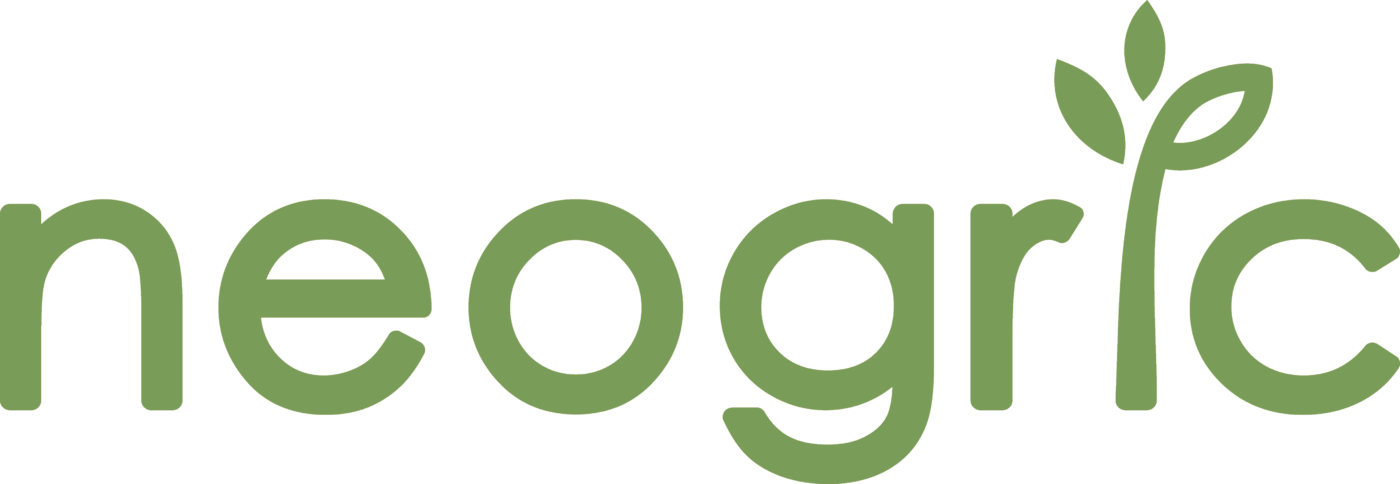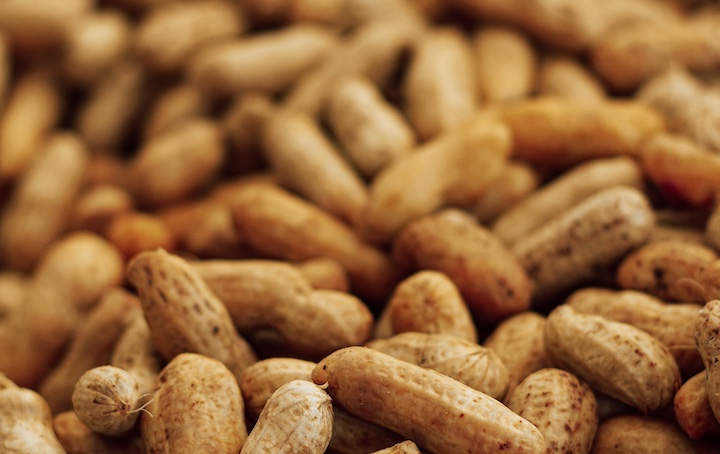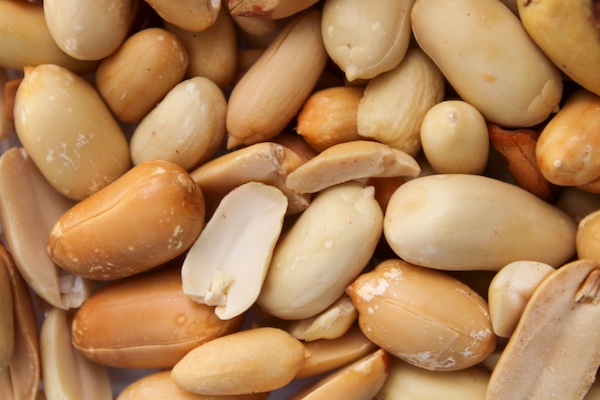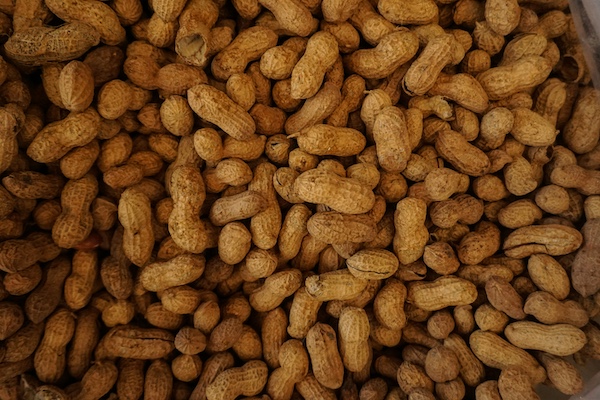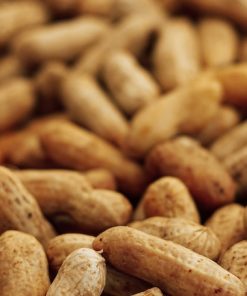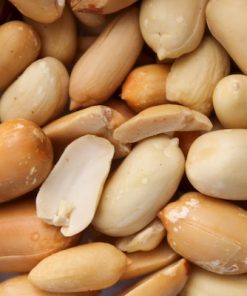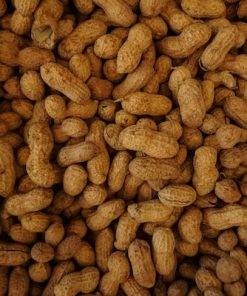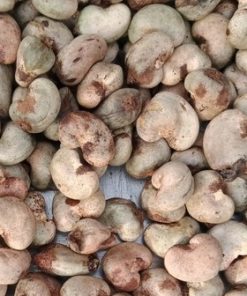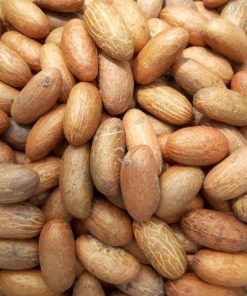What is Peanut? Why Buy It?
Peanut (Arachis hypogaea) is a leguminous crop widely cultivated for its edible seeds, which are rich in protein, healthy fats, and essential nutrients. Also known as groundnut, peanut is a staple food source and a significant agricultural commodity in various parts of the world. Unlike tree nuts, peanuts grow underground and belong to the legume family, making them a unique crop with versatile applications across different industries.
Peanuts are valued for their nutritional content, offering a good source of protein, dietary fiber, vitamins (such as B vitamins and vitamin E), and minerals like magnesium and phosphorus. Additionally, they contain monounsaturated and polyunsaturated fats, which contribute to heart health. The demand for peanuts is consistently high due to their use in various food products, animal feed, and industrial applications.
From an economic perspective, peanuts are a cost-effective protein source, making them an attractive option for food manufacturers and consumers worldwide. They are also widely used in oil production, with peanut oil being a preferred cooking oil due to its mild flavor, high smoke point, and health benefits. The growing demand for plant-based protein and natural food ingredients further boosts the global peanut market.
Applications/Uses of Peanut
Peanuts have extensive applications across multiple industries due to their rich nutrient profile and functional properties. The primary uses of peanuts include:
Food Industry
Snacks and Confectionery
Peanuts are consumed in various forms, including roasted, salted, and flavored snacks. They are also a key ingredient in candy bars, peanut butter, and energy bars.
Baking and Cooking
Ground peanuts and peanut flour are used in baking and cooking, adding flavor and nutritional value to cakes, cookies, sauces, and soups.
Peanut Butter
A popular spread, peanut butter is widely consumed as a nutritious and protein-rich food product, especially in North America and Europe.
Peanut Oil
Extracted from peanuts, peanut oil is a premium cooking oil used in frying, salad dressings, and margarine production. It is favored for its stability and health benefits.
Dairy Alternatives
Peanut milk and peanut-based dairy alternatives are gaining traction in the plant-based food industry.
Animal Feed Industry
Peanut Meal
A byproduct of oil extraction, peanut meal is used as livestock and poultry feed due to its high protein content.
Peanut Hay
The residual plant material after harvesting is used as forage for livestock.
Pharmaceutical and Cosmetic Industry
Skincare Products
Peanut oil is used in lotions, creams, and soaps due to its moisturizing properties.
Medicinal Uses
Peanuts contain resveratrol, a compound known for its antioxidant and anti-inflammatory properties, which is utilized in nutraceutical products.
Industrial Applications
Biofuel Production
Peanut oil can be processed into biodiesel, offering an eco-friendly energy alternative.
Textile and Leather Industry
Peanut-derived ingredients are used in the processing and finishing of textiles and leather.
Top Producing/Exporting Countries of Peanut
Peanut production is concentrated in regions with warm climates and fertile soils. The leading peanut-producing countries include:
China
China is the largest producer of peanuts, accounting for over 40% of global production. The country grows high-quality peanuts, primarily for domestic consumption and export to Asian and European markets.
India
India follows closely as the second-largest producer of peanuts, with significant production in states like Gujarat, Andhra Pradesh, and Tamil Nadu. Indian peanuts are widely exported to Southeast Asia, the Middle East, and Africa.
United States
The U.S. is a major peanut producer, with key growing regions in Georgia, Texas, Alabama, and North Carolina. The country exports high-quality peanuts to Europe, Canada, and Japan.
Nigeria
Nigeria is Africa’s leading peanut producer, supplying both raw and processed peanuts to regional and global markets. The country’s peanut production supports its local oil and confectionery industries.
Argentina
Argentina is known for its high-quality peanuts and is one of the top exporters to European markets. The country’s peanut industry is highly mechanized, ensuring consistent quality and supply.
Sudan
Sudan is a key peanut producer in Africa, with exports directed mainly to Middle Eastern and Asian markets. Sudanese peanuts are valued for their oil content and taste.
Senegal
Senegal has a well-established peanut industry, contributing to the country’s agricultural exports. The government supports peanut production through various agricultural initiatives.
Top Importing Countries of Peanut
Several countries import peanuts to meet their domestic consumption and industrial processing needs. The top peanut-importing nations include:
China
Despite being the largest producer, China imports significant quantities of high-quality peanuts from countries like the U.S. and Argentina to meet growing demand for snacks, oil production, and food processing.
European Union (EU)
The EU, particularly the Netherlands, Germany, and the UK, is a major importer of peanuts. The European market demands high-quality, aflatoxin-free peanuts for use in snacks, confectionery, and peanut butter production.
Indonesia
Indonesia imports large volumes of peanuts for use in traditional dishes, peanut-based sauces, and snack production.
Mexico
Mexico imports raw and processed peanuts, mainly from the U.S., to support its domestic snack and confectionery industries.
Canada
Canada imports peanuts primarily for peanut butter production and snack food processing, sourcing from the U.S., Argentina, and China.
Russia
Russia has a growing demand for peanuts, particularly for use in confectionery and snack foods.
Japan
Japan imports premium-quality peanuts for food processing, including snack production and peanut-based confectionery.
Vietnam
Vietnam is a key peanut importer, using the crop in traditional cuisines and food processing industries.
International Price of Peanut Per Metric Ton
The unit price ($ per kg) of Peanut in the international market depends on a host of different factors including:
- The grade of the produce (usually the more the processing, the higher the price)
- The price of the raw material
- Age of the seeds (this can affect the price)
- Production levels in producing countries
- Economic conditions and the exchange rates between the currencies of the producing and importing countries.
- The quantity ordered (the greater the quantity, the cheaper you can get it per ton)
- Harvest season (it is more costly when it is out of harvest season).
- Weather conditions (some commodities are sensitive to weather conditions).
- Freight & haulage cost
- Percentage of markup
- Import duties, trade tariffs and trade agreements between countries
- Distance from the country of origin
- Technology/Infrastructure available in country of origin
- Relationship between the buyer and seller
That said, as at March 2025, Peanut costs between $800 and $1,500 per metric ton (1,000 kilograms) in the international market (i.e. $0.8/kg to $1.5/kg).
How To Safely Source for Your Peanut Produce
If you find the right export company, buying directly from them can make the purchase process easy and stress-free, when compared with doing the sourcing on your own. That said, there are few things to note when dealing with an export company in Nigeria or Africa. The specific requirements for Nigeria are listed below, but they mostly apply to other African countries:
- The exporting company must be registered with the Corporate Affairs Commission (CAC) to make sure the company is registered and permitted to carry out business operations.
- The export company must also be registered with the Nigerian Export Promotion Council (NEPC).
- The company must possess a domiciliary account to accept international payments.
The company should get all necessary export-related documentation done before the shipment leaves the port of origin. Some of the documents are:
- Certificate of origin
- Bill of lading
- Inspection Certificate (SGS, Cotecna, Bureau Veritas, Intertek, etc)
- Phytosanitary certificate
- Fumigation certificate
Where To Find Reliable Exporters
An important question that still needs to be answered is how to find Peanut exporters in Nigeria. You can use any of the methods listed below:
- Attend trade fairs
- Use search engines like Google, Yahoo, etc.
- Search for agents on Linkedln
- Sign up on trade platforms (e.g. Alibaba, Tradeford, Go4WorldBusiness)
- Neogric – Neogric is one of the reliable Peanut exporters in Nigeria. Neogric is rated among the best in the exporting business in Nigeria. The company is not limited to the exportation of Peanut alone but can export other agricultural produce ranging from perishables to dry seeds.
How To Pay For Your Peanut Produce
You can pay for Peanut using different methods, but three of the popular ways of paying for your agric produce are:
- Bank (T/T) Payment
- Advance Payment
- Letter of Credit (LC)
Bank Payment (T/T)
Bank payment is also known as T/T, “Telegraphic Transfer” or “Telex Transfer” In other words, it is an international wire of funds from the buyer’s bank to the seller’s bank.
A T/T is technically not the same as a wire transfer, which is often done through the SWIFT network. However, when a seller or supplier asks for a T/T payment, a wire transfer is what they are really asking for.
The wire transfer based on the SWIFT system is the most common payment method in international trade. Typically, it takes 1-5 working days to clear, and generally costs between 25 and 50 USD, depending on your agreement with the commercial department in your bank.
Advance Payment
There are sellers that will demand anywhere from 30% to 50% advance payment, and for good reason. If both parties have done deals in the past, sellers can ask for a percentage of the sales (about 30%) before they ship the produce and they can request for the remaining amount after a scanned copy of the Bill of Lading has been sent to the buyer.
It is the safest option for exporters and it also guarantees that they will have some funds to help with sourcing. It is popular among manufacturers on B2B marketplaces like Alibaba and also with commodity traders.
However, advance payment carries considerable risk for the importer (buyer) because the exporter (seller) might not be under as much pressure to ensure quality checks compared with a stricter form of payment. Some might even disappear entirely.
Having said that, advance payment is very useful and is widely used. For instance, the seller might need to secure the commodity in the face of increased competition. It can also be used when the exporter needs some money for sourcing the produce or for processing raw materials.
The most important thing is for both importer and exporter to build mutual trust by having a track record of successful deals with each other or other known companies.
Letter of Credit
Letter of Credit is an agreement generated by the bank of the buyer, guaranteeing payment once certain conditions are met. It is one of the safest types of payment available to both buyer and seller.
Some of the types of Letter of credit are:
- Commercial Letter of Credit,
- Sight Letter of Credit
- Transferrable or Non-Transferable Letter of Credit
- Standby Letter of Credit (SBLC)
- Usance or Deferred Payment Letter of Credit
- Revocable or Irrevocable Letter of Credit
- Confirmed or Unconfirmed Letter of Credit
- Revolving Letter of Credit
- Green Clause Letter of Credit
- Red Clause Letter of Credit
L/Cs are not totally safe (for either buyer or seller) too. For instance, sellers can ship substandard products or those that are different from the ones agreed upon. In this case, the seller gets paid and the buyer receives goods he cannot use.
And speaking of the dangers of L/Cs for the exporter, the conditions in the Letter of credit might be practically impossible to fulfil; if an exporter agrees to such, he might be unable to receive payment. A report stated that of the letters of credit received in the UK, 50% are unworkable while 70% are rejected by the banks for payment.
Shipping & Delivery Terms
When shipping your products, it is important to take note of a few factors:
Order Quantity
For smaller shipments, airfreight is often the preferred option but as the order volume increases, sea freight could become significantly cheaper. Usually when the order is close to a full container load (20 ft), sea freight is used. Although the Covid-19 pandemic caused an increase in cost of delivery of products, prices have stabilised.
Cost of Delivery
When the order is of a large volume, sea freight often turns out cheaper than air freight. In fact, air freight could be up to 6 times more costly than sea freight if the volume is large enough.
Time of Delivery
Sometimes, time will be more important to the buyer than the cost of delivering the product. In this case, air freight will be the logical option (as stated above, the cost will be more). But if you have more time as a buyer, you should strongly consider using sea freight.
Incoterms
Incoterms refer to generally accepted shipping and payments terms. For example, buyers that have representatives in the source country or that can negotiate with the freight company can use the Free of Board (FOB) terms, since it gives them more control and can save them some money.
However, if the shipment is small or the buyer doesn’t have an extensive network to effectively handle payment for freight, insurance and port charges, he will be better off choosing the Cost-Insurance-Freight (CIF) payment option.
Neogric: Top Exporters and Suppliers of Peanut
We invite you to place your order for high-quality Peanut with us at Neogric. We are a trusted global commodity sourcing and trade solution provider with deep expertise in the Peanut industry. Whether you’re a small business or a large corporation, our wide range of products and technology powered, end-to-end supply chain make the export of quality Peanut easy, quick and safe. Whichever region of the world you are, be it Europe, Asia, USA, Canada, Other North/Central American countries, Africa, South America or Oceania, you can reliably order your agricultural produce and we will ensure it is successfully delivered to you, on time.
Why Buy Peanut From Neogric?
Choosing Neogric as your Peanut supplier offers several advantages:
- Quality Assurance: We maintain strict quality control standards, ensuring our Peanut and other products are of the highest quality.
- Wide Product Range: We offer a diverse selection of products, catering to various needs.
- Reliable Supply Chain: Our efficient technology-powered end-to-end supply chain ensures timely delivery of your orders.
- Expertise and Support: Our team of experts provides valuable insights and support, making your purchasing process smooth and hassle-free.
Our Peanut Trade Specifications
- Origin: Nigeria
- Product Name: Peanut
- Physical Specification: Based On Buyer’s Specification
- Quantity: Based On Buyer’s Specification
- MOQ: 10 Metric Tonnes
- Trade Process: Ex Works/FOB/CIF
- Admixture/Impurities: Based On Buyer’s Specification
- Inspection: SGS/Cotecna/Intertek/Bureau Veritas
- Packaging: Based On Buyer’s Specification
- Payment Method: TT (Bank Transfer) or L/C
- Shipping Time: 15 to 25 Days After Confirmation of TT or L/C
- Loading Port: Lagos (Nigeria), Abidjan (Cote D’ivoire) or Tema (Ghana)
Expected Shipping Documents
- Bill of Lading
- Certificate of Origin
- SGS Inspection Certificate
- Phytosanitary Certificate
- Fumigation Certificate
- Commercial Invoice
- Packing List
Place Your Peanut Order With Neogric
Contact us today to place your order for high-quality Peanut. Our team is ready to assist you with all your procurement needs.
- Tel: +2348147860157
- Email: neo@neogric.com
- WhatsApp: Chat With Us
